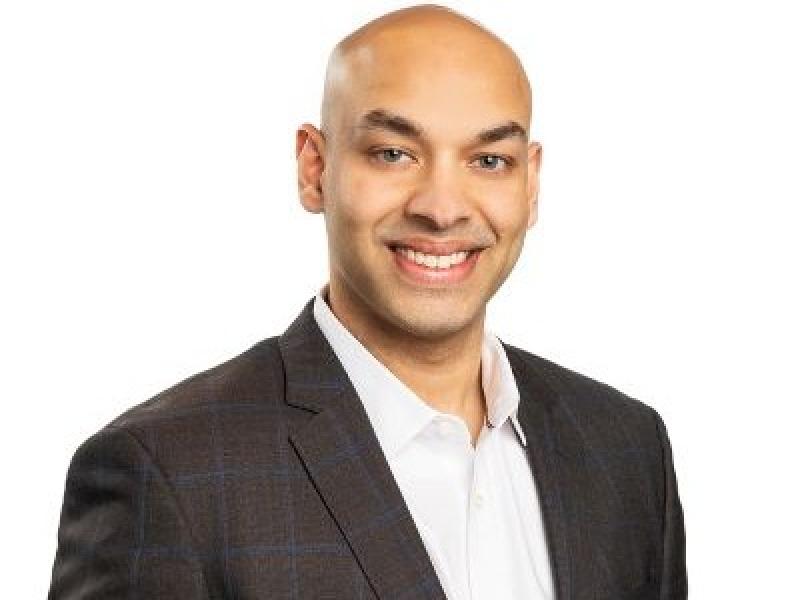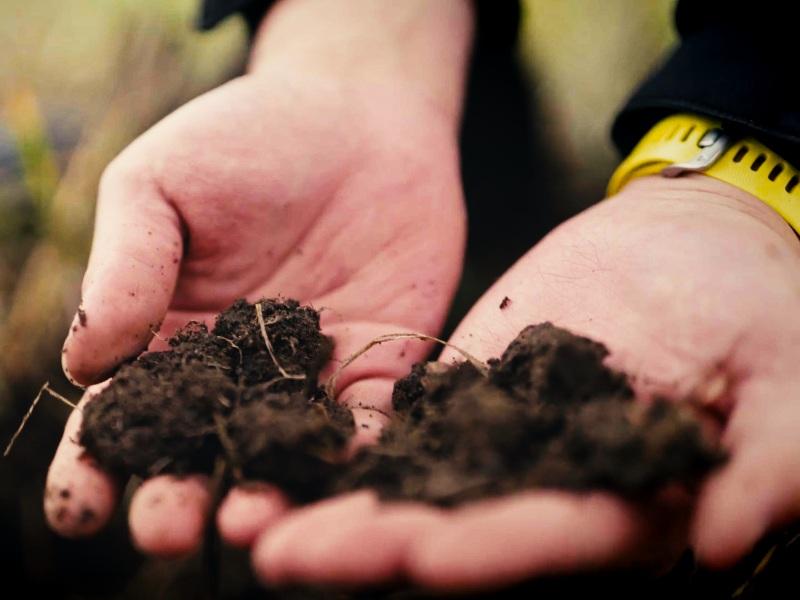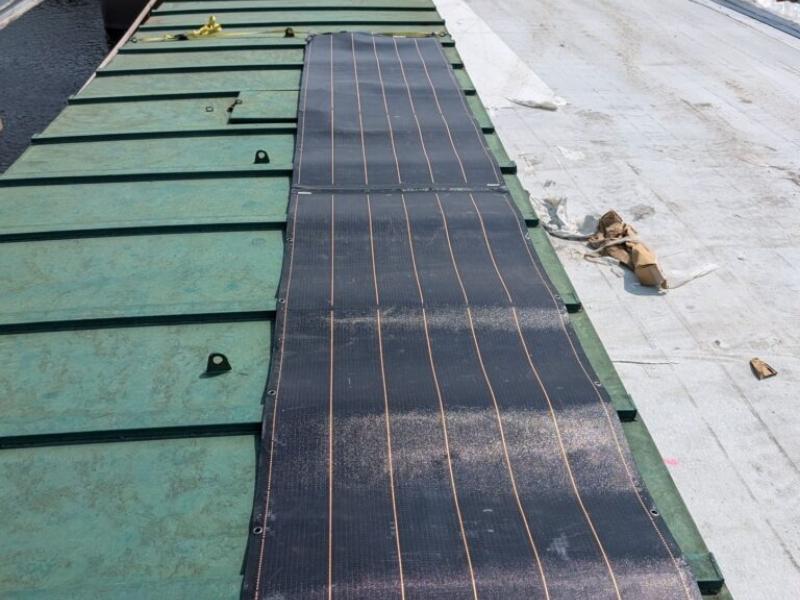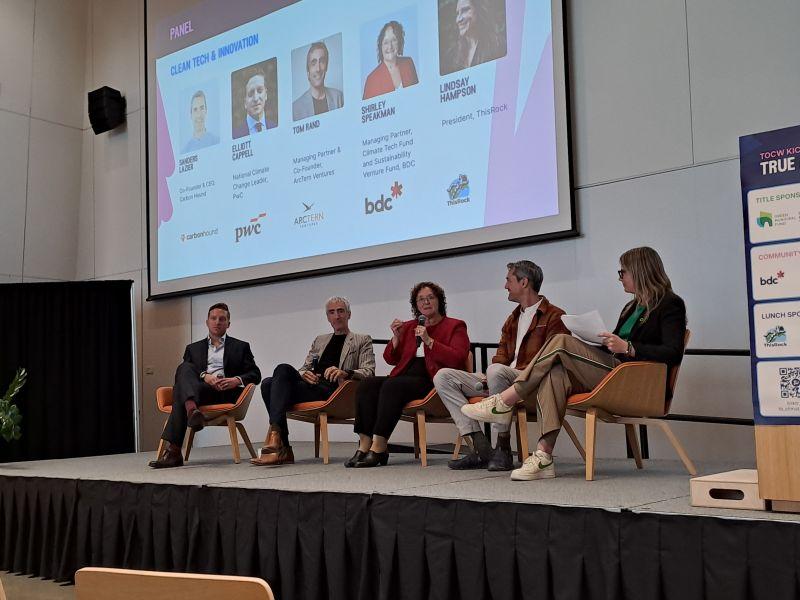
Montreal-based urban beekeeping company Alvéole is sustaining the buzz around its business by acquiring key clients in landmark buildings and securing $8.1 million in funding for continued expansion and software development.
The company installs bee hives on rooftops and runs programming through its software to raise awareness about the value of bee populations for its customers. It is present in approximately 40 cities across Canada, the U.S. and Europe.
Alex Mclean, CEO of Alvéole, said the idea for the company emerged after years of summers spent working in his uncle’s Manitoba commercial bee farm. He cultivated a passion for beekeeping and fell in love with the pollinators and everything they represent.
In 2013, Mclean carried over some of his uncle’s hives to Montreal so he could experiment with a traditional beekeeping model centred around producing honey in rooftops. But Mclean pivoted Alvéole to connect with people and aid large organizations and buildings with their environmental, social and governance commitments.
“We shifted the business model to selling more of a beekeeping experience instead of selling the product that comes out of bee hives,” he said.
How Alvéole works
Alvéole charges its customers an annual fee for maintaining beehives and running its digital engagement platform named MyHive.
It allows clients to view the progress of the hives and see scheduling for events. They can engage with the beehives even while they work remotely or cannot access the hives on the rooftops.
Alvéole has engaged with 300,000 people on its online platform so far in 2022, according to Mclean.
At the end of the year, Alvéole distributes its branded honey to customers for a sweet finish.
Bee populations are under enormous duress, with ecologists, scientists and beekeepers sounding the alarm about colony collapse disorder. Mclean said there is no “silver bullet” solution and “urban beekeeping on its own is not going to solve the problem.”
He isn’t looking to “save the bees” in cities, but aims to reach enough people with the company’s message so people shift their habits.
“Connecting people to nature, this idea that people understand the importance of bees and the importance of the environment and ecosystem, they’ll make choices to protect them.”
Some behavioural changes include buying fewer pesticides and purchasing organic food and local honey. In cities, a big change is how landscaping and planting is performed. Alvéole works with its customers on landscaping to encourage minimal pesticide use and planting native flowers to help pollinators.
Alvéole’s customers
Alvéole has already built a portfolio of iconic building landmarks around the globe. It operates around 4,000 bee hives in major centres like Toronto, Montreal, New York City, London, Paris, Amsterdam and Berlin.
Toronto is Alvéole’s biggest market with its services on the base of the CN Tower, the Metro Toronto Convention Centre and hotels across the city.
It counts the the Empire State Building and Rockefeller Center in New York City, and Chicago’s Willis Tower among its clients. Alvéole also serves the Notre-Dame de Paris. Mclean said its bees survived the fire that engulfed the cathedral in 2019, much to his relief.
His company forged relations via cold calls to create interest from companies and buildings.
“I don’t think a lot of people wake up in the morning looking for beehives,” he said.
Though the company did not intend to focus on real estate, Alvéole inevitably ended up in the property manager’s office as it needed approval from the building’s owner when pitching its business. That led to a decision to start from the property managers' perspective, get them excited, and then convince management about the value proposition.
Mclean claimed Alvéole loses less than three per cent of its customers per year, as its customers see the passion exuded from the company and the obsession and effort it puts into a “weird product.”
“A lot of our growth and introductions has been from customers that have had a really good experience and are saying, 'Hey you should really talk to these guys, they’re interested in this as well.’”
Funding and its future
The company has faced criticism from Canadian grassroots movements for failing to accommodate for local biodiversity and engaging too closely with large companies.
Mclean said “we have to talk to sometimes bankers and financial people that are working in these big towers” to grow awareness.
The company has raised $8.1 million in Series A investment from Toronto-based venture and growth capital firm Round13 Capital. It tapped into Round13 Capital’s EarthTech Fund for green initiatives and innovators.
Alvéole will invest the funds into its suite of new offerings and software for 2023.
One idea is 'wild bee hotels,' which supports local pollinators beside honey bees. With the data from wild bee hotels, Alvéole can inform its clients about the flowers they need to plant to sustain their populations.
Alvéole will continue to develop MyHive with the aim of transforming cities and rooftops for improved biodiversity and sustainability by substantially raising engagement with the employees of its clients. He also said Alvéole would explore urban farms.
There is also the intent to grow in Europe and Asia. Singapore is a particular standout Mclean pointed to, with the urban sustainability movement burgeoning in Europe and Asia.










